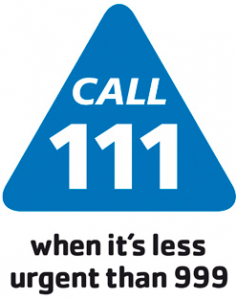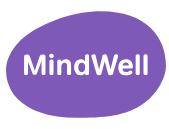
Contact Us
Tel: 0113 843 4388
Email: leeds.mws@nhs.net
Our office opening hours are:
Monday, 8:00am - 4:00pm
Tuesday, 8:00am - 4:00pm
Wednesday, 8:00am - 4:00pm
Thursday, 8:00am - 4:00pm
Friday, 8:00am - 4:00pm
Please note we are closed on Bank Holidays.
Find Us
Burmantofts Health Centre, Cromwell Mount Leeds, LS9 7TA
LMWS Blog: Suicide prevention - how we can all help
More than five thousand suicides were registered in 2021 – three hundred more than the previous year. In the latest LMWS Blog, Psychological Wellbeing Practitioner Vanessa Suttill explains the link between mental health and suicide, and how LMWS works to ensure people can access the support and guidance to take care of their mental health – and help those around them.
What is suicide?
‘Suicide is the act of intentionally taking your own life,’ Vanessa explains. ‘This is different from having suicidal thoughts and feelings, which is much more common. When people feel low, stressed or overwhelmed, they may have thoughts about not wanting to be here or that others would be better off without them.’
Suicide and mental health
The Leeds Suicide Audit (2014-16) found that 78% of those who took their own life had a documented history of a mental health diagnosis.
‘There is clearly a strong link between suicide and mental health difficulties,’ says Vanessa. ‘This is particularly apparent among those with depression or alcohol use disorders.’
However, suicide does not occur solely among those struggling with long term mental health issues. ‘Many suicides can also happen when the person acts impulsively in a moment of crisis where they feel they do not have the ability to deal with life’s stresses,’ says Vanessa. ‘This could be a financial issue, the breakdown of a relationship or a serious health diagnosis.’
How can this impact family and friends?
Everyone is different when responding to a loved one’s suicide. ‘Everyone had their own relationship with the person and will thus grieve in their own way at their own pace,’ says Vanessa.
Feelings of guilt, isolation and abandonment can often arise. ‘The bereaved often ask themselves why their loved one took their own lives – and if they could have helped to prevent it. They may feel rejected or betrayed that their loved one didn’t ask them for help.’
How can we help prevent suicide?
One of the key things to consider is a person’s vulnerability to suicide. ‘Previous suicide attempts, mental health problems, negative life events and/or a recent diagnosis are all factors,’ says Vanessa. ‘Levels of impulsivity must also be considered – especially among drug or alcohol users.’
If you’re concerned about a friend or family member, Vanessa advises looking out for certain changes in behaviour. ‘Are they saying they are a burden to others or have no reason to live?’ says Vanessa. ‘Are they withdrawing from activities or isolating themselves from others? Are they irritable, depressed or anxious? These signs don’t necessarily indicate that the person is suicidal, but they are something to keep an eye on.’
Vanessa emphasises that positive influences and resources can make all the difference. ‘Protective factors and positive coping resources can help to reduce the risk of suicide. These factors give the person hope, optimism and can empower them to learn how to increase their feelings of safety when having suicidal thoughts.’
What support is available?
LMWS offers a wide range of psychological and talking therapy options for people in Leeds. ‘If you are feeling stress, anxious or low in mood, LMWS can help,’ Vanessa explains. ‘We have a wide range of options, from online courses to face-to-face counselling. You can even sign up for classes directly from the website – no referral needed.’
‘Your GP is also a great place to start,’ say Vanessa. ‘And there are many resources available to those with suicidal thoughts and/or their families.’
Resources and helplines
- West Yorkshire 24-hour mental health helpline – 0800 183 0558 (FREE)
- Samaritans – 116 123 (FREE)
- Stay Alive app
- Calm Harm app
- Mindwell Leeds
- Wellbean Cafe.
If you are concerned about your current wellbeing, please contact your GP, access help via 111 or contact the 24 hour Crisis Assessment Service on 0800 183 1485.


